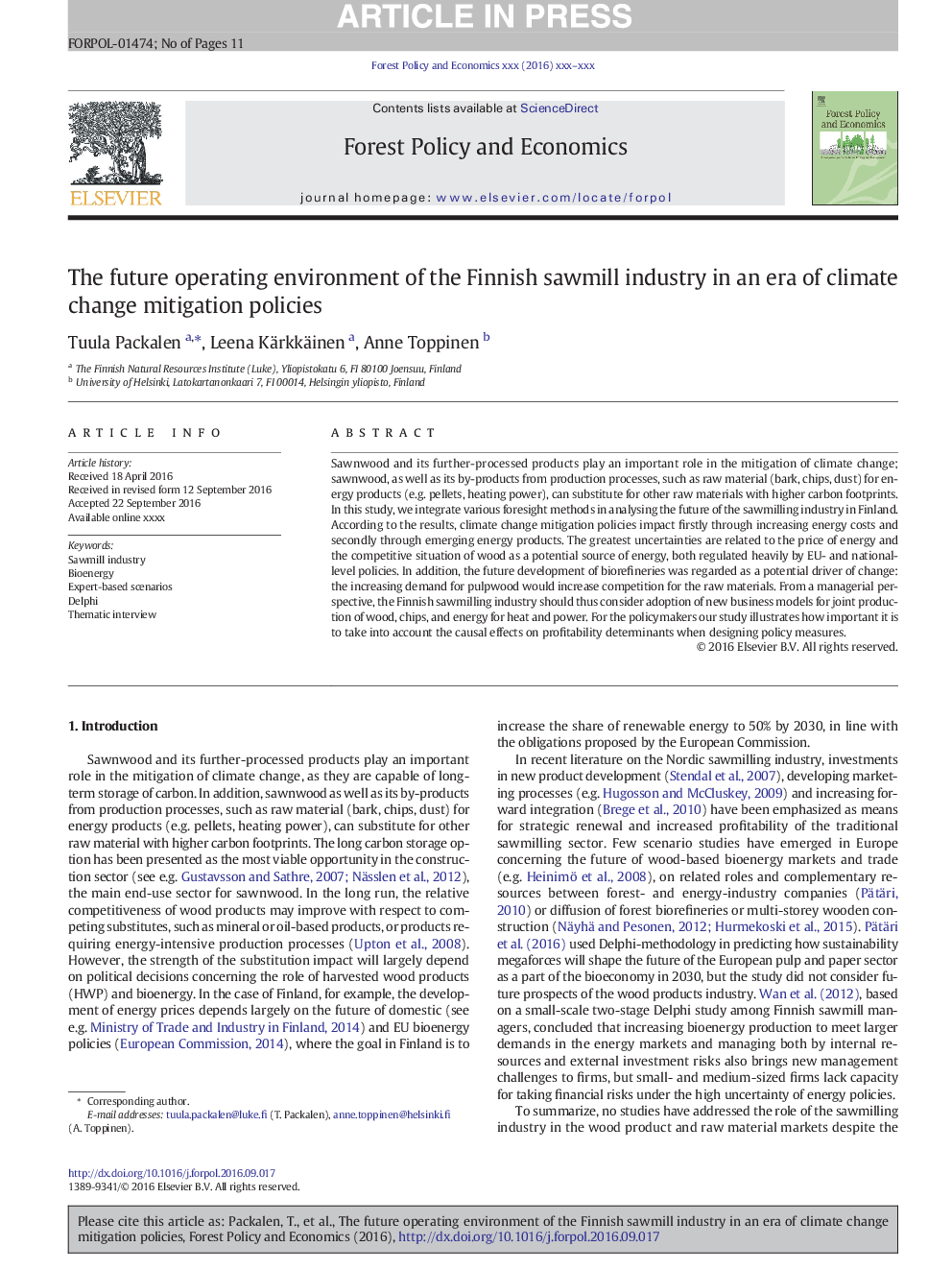ترجمه فارسی عنوان مقاله
محیط کاری آینده صنایع جنگلی فنلاند در دوران تغییرات اقلیمی
عنوان انگلیسی
The future operating environment of the Finnish sawmill industry in an era of climate change mitigation policies
| کد مقاله | سال انتشار | تعداد صفحات مقاله انگلیسی |
|---|---|---|
| 125027 | 2017 | 11 صفحه PDF |
منبع

Publisher : Elsevier - Science Direct (الزویر - ساینس دایرکت)
Journal : Forest Policy and Economics, Volume 82, September 2017, Pages 30-40
ترجمه کلمات کلیدی
صنعت چوب بیو انرژی، سناریوهای مبتنی بر کارشناس، دلفی، مصاحبه موضوعی
کلمات کلیدی انگلیسی
Sawmill industry; Bioenergy; Expert-based scenarios; Delphi; Thematic interview;
ترجمه چکیده
چوب سوز و سایر محصولات فرآوری شده آن نقش مهمی در کاهش تغییرات آب و هوایی ایفا می کنند. چوب سونا و همچنین محصولات جانبی آن از فرایندهای تولید مانند مواد خام (پوست، چیپس، گرد و غبار) برای محصولات انرژی (مثلا گلوله، قدرت گرمایشی) می تواند سایر مواد خام را با رد پای کربن جایگزین کند. در این مطالعه، ما روش های پیش بینی های مختلف را در تجزیه و تحلیل آینده صنایع جنگل در فنلاند ادغام می کنیم. بر اساس نتایج این تحقیق، سیاستهای کاهش فشار آب در اولویت افزایش هزینه های انرژی و در مرحله دوم از طریق محصولات تولید انرژی است. بزرگترین عدم اطمینان مربوط به قیمت انرژی و وضعیت رقابتی چوب به عنوان یک منبع بالقوه انرژی است که به شدت توسط سیاست های اتحادیه اروپا و سطح ملی تنظیم شده است. علاوه بر این، توسعه آینده سازه های زیست محیطی به عنوان یک ریسک بالقوه تغییرات محسوب می شود: تقاضای روزافزون برای چوب خردل رقابت را برای مواد خام افزایش می دهد. از دیدگاه مدیریتی، صنعت جنگلی فنلاند باید در نظر دارد مدل های کسب و کار جدیدی را برای تولید مشترک چوب، تراشه و انرژی برای گرما و قدرت درنظر بگیرد. برای سیاست گذاران، مطالعه ما نشان می دهد که چقدر مهم است که در هنگام طراحی اقدامات سیاست گذاری، تاثیرات علیت بر عوامل تعیین کننده سودمندی را در نظر بگیریم.

